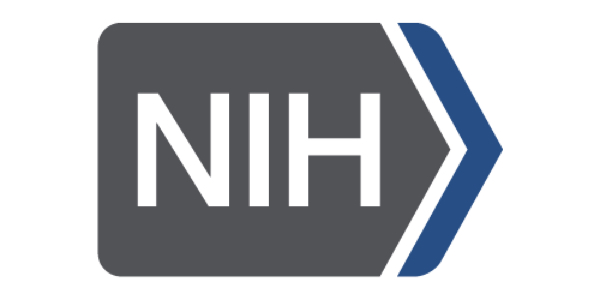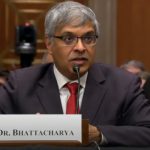
NIH to crack down on taxpayer-funded censorship: A victory for academic freedom
Saturday, March 29, 2025 by Willow Tohi
http://www.progress.news/2025-03-29-nih-crack-down-on-taxpayer-funded-censorship.html

- STAT News initially (and incorrectly) claimed the NIH directive to compile grants related to “fighting misinformation” was issued on Jay Bhattacharya’s first day as director. However, Bhattacharya had not yet been sworn in, highlighting scrutiny around his nomination.
- The NIH instructed staff to identify contracts tied to censorship or influencing health beliefs, including keywords like “vaccine hesitancy” and “lockdowns.” This follows recent cancellations of 33 similar grants, signaling a shift away from taxpayer-funded persuasion campaigns.
- As a critic of COVID-19 policies and plaintiff in the Murthy v. Missouri censorship case, Bhattacharya pledged to end NIH’s “culture of cover-up” and promote diverse scientific perspectives, including dissenting views on pandemic measures.
- Investigations revealed NIH-funded projects—such as $340,000 for psychological tactics to boost HPV vaccine uptake in South Africa—raising concerns about government overreach. Canceling such grants aligns with calls for scientific integrity.
- Once labeled “fringe” for opposing lockdowns, Bhattacharya’s confirmation as NIH director marks a turning point for academic freedom, challenging past censorship efforts by public health institutions.
The National Institutes of Health (NIH) made headlines this week with a directive to compile a list of grants and contracts related to “fighting misinformation or disinformation.” While the initial reporting by STAT News suggested this directive came on the first day of Jay Bhattacharya’s tenure as NIH director, it’s important to note that Bhattacharya hadn’t yet been sworn in. This clarification is important as it reflects the ongoing scrutiny and criticism surrounding Bhattacharya’s nomination and the broader implications for academic and scientific freedom.
A misstep in reporting
STAT News initially misreported that the directive was issued on the same day that Bhattacharya took the helm at NIH. However, Bhattacharya was only confirmed by the U.S. Senate on Tuesday and hadn’t been formally sworn in. Investigative journalist Paul D. Thacker highlighted this discrepancy on X, stating, “It’s ironic that STAT’s story on misinformation contained misinformation.”
STAT quickly corrected the article to reflect the accurate timeline but maintained the bulk of the content, which was largely critical of Bhattacharya. Executive editor Rick Berke told The Defender, “STAT corrected the story and stands by the corrected version.”
NIH’s call for transparency
The NIH directive asked staff to compile information about any contract that “may be related to any form of censorship at all or directing people to believe one idea over another related to health outcomes.” The email contained examples such as contracts promoting vaccine uptake or public health messages about the “dangers of COVID or not wearing masks.” It also instructed staff to search for keywords like media literacy, social media, social distancing and lockdowns.
This request is significant because similar directives by top NIH officials in recent weeks have preceded the termination of research funding. The agency has already informed researchers that it will cancel at least 33 vaccine hesitancy grants and reduce or modify nine others. This move is seen as a step towards eliminating taxpayer-funded censorship.
A shift in priorities
Experts interviewed by STAT expressed mixed reactions to the directive. Some, like Dr. Jonathan Howard, a psychiatrist, criticized Bhattacharya, suggesting he has portrayed himself as a victim of censorship. However, Bhattacharya, a critic of COVID-19 pandemic restrictions and a co-author of the “Great Barrington Declaration,” is one of the lead plaintiffs in the Murthy v. Missouri censorship case. This case alleges that Biden administration officials colluded with social media companies to censor dissenting views on several issues, including prevailing COVID-19 policies, lockdowns and mask and vaccine mandates.
In a decision that was widely criticized, the U.S. Supreme Court in June 2024 remanded the case to the lower court, ruling that the plaintiffs didn’t have standing to sue because they couldn’t point to direct orders the administration gave to censor individual posts. However, the court acknowledged that the plaintiffs, including Bhattacharya, were censored. Each doctor in the lawsuit “faced his first social media restriction in 2020,” the decision stated.
The road to reform
In his nomination hearings, Bhattacharya committed to changing the culture of censorship at NIH. He said, “Over the last few years, top NIH officials oversaw a culture of cover-up, obfuscation and a lack of tolerance for ideas that differ from theirs. Dissent is the very essence of science. I’ll foster a culture where NIH leadership will actively encourage different perspectives.”
Bhattacharya emphasized that scientific progress requires tolerance for a broad range of perspectives. “I want to make sure that all the ranges of hypotheses are supported,” he said. He also noted that censorship of non-establishment perspectives, including criticism of pandemic-era measures such as lockdowns, caused significant harm.
Funding the wrong priorities
The Defender conducted several investigations in 2023 and 2024 that revealed the types of grants that may now be on the chopping block. These investigations uncovered hundreds of millions of dollars in taxpayer-funded grants awarded by NIH and the Department of Health and Human Services (HHS) to decrease so-called “vaccine hesitancy” and increase vaccine uptake for COVID-19, flu and HPV vaccines.
For example, a 500,000 NIH grant was awarded to create a smartphone tool to push the HPV vaccine among underserved adolescents whose parents are “vaccine?hesitant.” Another 2.2 million grant tested personalized “nudges” to coax elderly people into taking more shots. The NIH also spent $340,000 on a pilot project to use psychological tactics to persuade South African fifth-graders and parents to accept the HPV vaccine.
These grants, funded through a series of Freedom of Information Act (FOIA) requests, highlight the extent to which taxpayer money has been used to direct people’s decision-making toward government-approved behaviors. The potential cancellation of such contracts is seen as a positive step toward scientific integrity and academic freedom.
From “fringe” to mainstream
Jay Bhattacharya’s nomination to head NIH represents a significant shift in the landscape of public health and academic freedom. Four years ago, Bhattacharya was ostracized by his colleagues at Stanford and censored on social media platforms due to a campaign against him by the public health establishment. The director of the NIH at the time, Francis Collins, even urged a “quick and devastating published takedown” of Bhattacharya and his fellow “fringe epidemiologists.”
Today, Bhattacharya is far from the fringe. His nomination by Donald Trump and confirmation by the Senate is a major victory for science and academic freedom. As NIH director, Bhattacharya will have the power to reform American scientific institutions and restore public trust in science.
A call to action
“The Biden administration ran the largest censorship operation in history and they did it to enrich their donors in the pharmaceutical industry and public health insiders who held intellectual property rights to mRNA technology,” said Toby Rogers, Ph.D., a scholar at the Brownstone Institute. “Cancelling contracts is a good start. We also need to fire the people responsible, prosecute any criminal actions, repeal any laws or policies that enabled this to happen, and allow the public to access all government records concerning the censorship program.”
As the NIH takes steps to address the culture of censorship, it is crucial that these efforts are transparent and inclusive. The future of scientific progress and public trust depends on it.
Conclusion
The NIH’s directive to compile a list of grants and contracts related to “fighting misinformation or disinformation” is a significant step toward restoring academic freedom and scientific integrity. While the initial reporting by STAT News contained an error, the broader implications of this directive are clear: The NIH is taking a stand against taxpayer-funded censorship. This move is a victory for those who believe in the importance of open scientific debate and the protection of academic freedom.
Sources include:
Tagged Under: Tags: badhealth, biased, big government, Censored Science, Censorship, government debt, health freedom, intolerance, medical censorship, Medical Tyranny, misinformation
RECENT ARTICLES


The NIH reckoning: Battling censorship and restoring free speech in health research
By Willow Tohi

Montana bans transgender athletes in women’s sports, restricts bathroom access
By Cassie B.

Trump takes on ticket scalpers with new executive order targeting bots and price gouging
By Cassie B.

Trump administration deploys spy satellites to enhance southern border surveillance
By Willow Tohi
COPYRIGHT © 2017 PROGRESS NEWS


